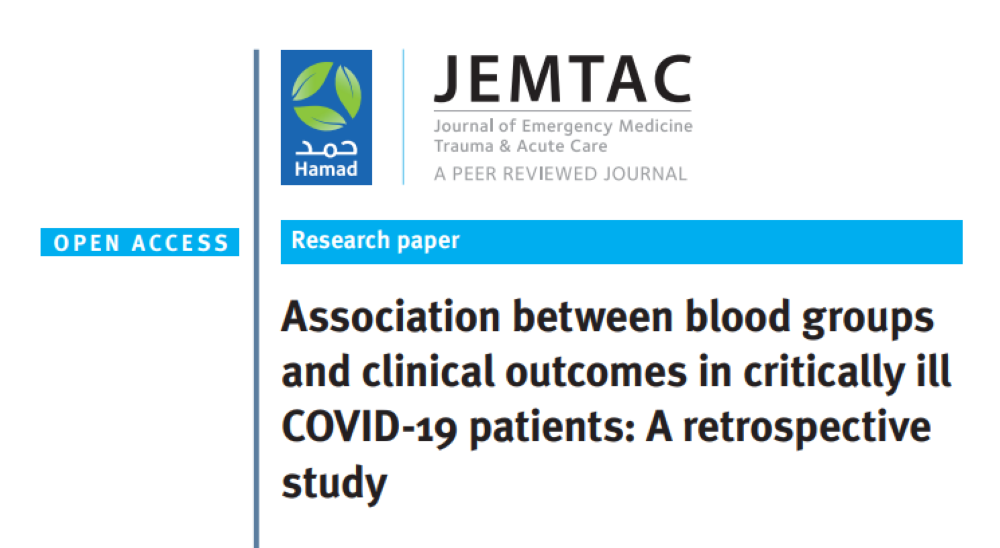A Qatar-based study has found there is no concrete evidence to link certain blood groups to any fatalities due to Covid-19 or severity of the infection among some patients, contrary to certain theories and beliefs propagated among some quarters of the society globally.
“This study revealed no association between ABO blood groups and unfavourable clinical outcomes in critically ill Covid-19 patients. The Rh-negative blood type was associated with slightly lower odds of death compared to the Rh-positive one,” noted the study, published on Qscience.com.
“A small proportion of patients infected with severe acute respiratory syndrome coronavirus 2 (Sars-CoV-2) become critically ill. Individuals’ blood group may influence their susceptibility to infection. However, the relationship between blood groups and clinical outcomes in severe Covid-19 is not well established. Therefore, we conducted a study to investigate the association between blood groups and clinical outcomes in critically ill Covid-19 patients,” the researchers said in the study.
A group of Qatar-based researchers worked on this particular aspect and analysed several hundreds of critically ill Covid-19 patients. “We retrospectively analysed electronic health records of Covid-19 patients admitted to intensive care units at Hazm Mebaireek General Hospital from March 7, 2020, to July 15, 2020. The study population was divided based on their blood groups into types A, B, AB, O, Rhesus (Rh)-positive, and Rh-negative,” the study highlighted.
The primary outcome studied in each blood group was all-cause ICU mortality. Secondary outcomes evaluated were the requirement and duration of mechanical ventilation, ICU days, hospitalisation days, and C-reactive protein (CRP) value on admission.
A total of 848 patients with Sars-CoV-2 infection admitted to ICUs at Hazm Mebaireek General Hospital fulfilled the inclusion criteria and were included in the analysis. All-cause ICU mortality in the study population was 19.8% (168/848), and that in individuals with blood groups A, B, AB, O, Rh-positive, and Rh-negative was 22.6% (52/230), 18.1% (44/243), 22% (18/82), 18.4% (54/293), 20.4% (165/810), and 7.9% (3/38).
Although the highest mortality was noted in blood group A, followed by AB, these observations failed to achieve statistical significance. Rh-negative blood type had lower odds of death compared to the Rh-positive one. None of the blood groups showed an association with the need for mechanical ventilation, duration of mechanical ventilation, duration of ICU and hospital stay, and CRP value on admission.
Data collected were demographic characteristics, comorbid conditions, ABO and Rh blood group types, blood test results, need for mechanical ventilation, ICU and hospitalisation days and mortality.
The study found that neither ABO nor Rh-groups achieved feasible significance on univariate analysis to support their inclusion in the multivariate prediction model for mechanical ventilation. Regarding other secondary outcomes, the median difference in days of mechanical ventilation, duration of ICU and hospital stay, and CRP among the various ABO and Rh groups did not demonstrate statistical significance.
The study has also suggested that future studies should focus on population-based differences in blood types, investigate the underlying mechanisms by which blood groups might predispose susceptibility to Sars-CoV-2 infection and ultimately develop strategies to prevent illness and adverse outcomes.


